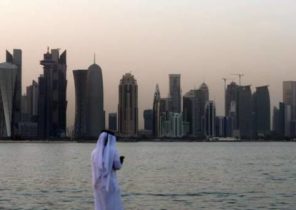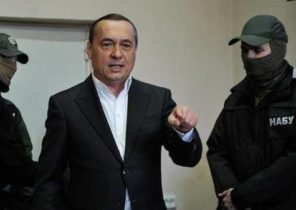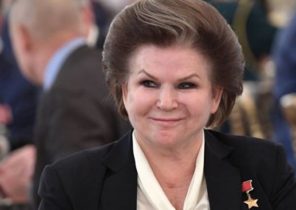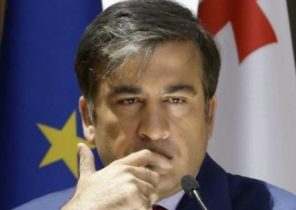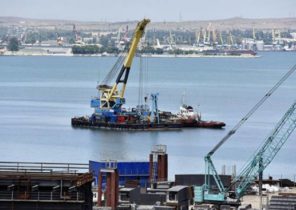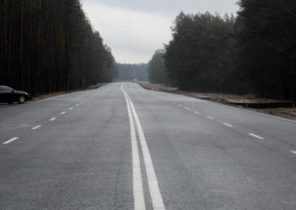
Time is short: to the 100th anniversary of the Russian revolution of 1917, which will be celebrated in mid-February, only a few weeks — and the official program of commemorative events has just begun. First meeting of the organizing Committee, created by order of President Vladimir Putin, took place last Wednesday. To do this before, it was hardly possible, because the corresponding decree of the Kremlin, appeared on December 19. Until that moment it was unclear who would be responsible for it, as Russia remembers the events that collectively have become the fundamental turning point in its history, and determined not only the fate of Russia, but all over the world for many decades to come.
The late start of preparation due to the fact that the Russian government is experiencing difficulties with the assessment of the events of 1917. In Russia with the filing of the state for many years cultivated this understanding of the history, which does not include ambiguities and shades. The task of historiography is to narrate about the greatness, victories, and heroes of Russia. “We care not a dozen versions in which the historical truth is sometimes like wandering in a dark forest” — so says the Minister of culture of Russia Vladimir Medinsky in the Preface to his bestselling book “Myths about Russia”. He notes that the important “a good example” for the current generation, which it must learn from history.
The rehabilitation of Stalin in recent years, consistent with this imperative. His crime is not denied, but relate to alleged successes in the industrialization of the country and, above all, with the victory over national socialist Germany during the Second world war — and they [the offence] is considered not so serious. Therefore, in Russia the memory of the many millions of victims of the Gulag is located on the periphery of public attention. Innocent victims of repression and prisoners who defended their faith or ideals, from the standpoint of official historiography not suitable for “bright examples”. Find them among engineers, professors, activists of the Communist youth organization, intelligence personnel and soldiers a hero can be the only one who remained loyal and fought for the greatness and power of the Russian state. Praise him as a constant source of national pride, which rises above all the crucial moments of history, so there is the opportunity to simultaneously glorify the tsarist Empire and the Soviet Union.
The revolution in February and in October 1917 and the ensuing civil war between “red” and “white” out of this paradigm of narrative. These were the years of the breach, not of permanence, and years of internal weakness and disorder, and not the victories and greatness, the infinite years of brutal war against Russian Russian where only he can find the heroes who will support one direction or another.
In early December, the Federal Assembly, Putin noted in connection with the memorable date of the revolution that “the lessons of history we need first of all for reconciliation, to strengthen public and political consensus, which we managed to achieve”. According to him, unacceptable “for their own political and other interests to speculate on the tragedies that have touched almost every family in Russia, on whichever side of the fence may be then, our ancestors”.
In fact it emerges that the Russian leadership is trying to do just that: to use memories of the horrors of revolution and civil war to legitimize their own power. The turmoil of those years that came after 1917, is a trauma that still affects Russian society, especially because they seem to fit into the scheme, which is rooted deep in Russian history. In the XVII and XVIII centuries, the tsarist Empire was shaken by unprecedented social uprisings, and their destructive rage has given echo in the nineteenth century — in the form of terrorist attacks “left-wing” terrorists. The concept of “Russian revolt” has become synonymous with violence. Due to the fact that Russia has a deeply rooted fear of such unrest, the protest movement of winter 2011/2012 emphasized that it does not want revolution.
To these historic fears of the Russians, the powers that are appealed to during the revolution in Ukraine. “We see how the romantic rhetoric of the speakers of the various color revolutions entail blood and human suffering,” — said the head of the foreign intelligence Service Sergei Naryshkin last week at the first meeting of organizing Committee on preparation for the 100th anniversary of the 1917 revolution. As the Chairman of the Russian historical society, he is responsible for the official memories of the year 1917. “I am convinced that our society has a powerful inoculation against such technologies.”
For the wording “such technologies” implies the statement of the Russian leadership that the protest movement in the former Soviet Union is the operation of Western intelligence agencies, designed to weaken Russia. Allegations that the Russian critics of the regime acting on behalf of enemy forces, are regularly repeated in state media, and the adoption of the law on “foreign agents”, they have acquired the form of law.
The analogy with 1917 is obvious: in the end, in April 1917, Lenin and other prominent Bolsheviks came to Russia from Swiss exile with the help of the German Empire, with the result that even then the myth that they acted on behalf of the Germans. The Minister of culture Medinsky has picked up this aspect, when in may of last year formulated the basic parameters of memorable events timed to the anniversary of the revolution: it should be clear, as “it is a mistake to rely on the help of foreign “allies” in the political struggle”.
A deep rift in Russian history they were the end of the monarchy in February and the Communist coup in October 1917 — Medina is trying to “soften” with desperate historical and philosophical design: in his view, the logic of history forced the Bolsheviks after the seizure of power, against their own ideological assumptions, to rebuild the Russian state. Not “red” defeated the “white” won “a third force, which did not participate in the civil war historical Russia”. From this point Medina draws a direct line to the present: after the collapse of the Soviet Union in 1991, “we are only now seeing as a historical Russia — without hesitation — returns to his rights — as has always happened in our history.”
Such reasoning is not the place for one important issue, namely related with the regime of economic, social and political reasons that in 1917 led to the revolution, and in 19991 — the collapse of the Soviet Union. This question, in view of the monstrous structural problems in modern Russia is not included in the plans of those in power.

